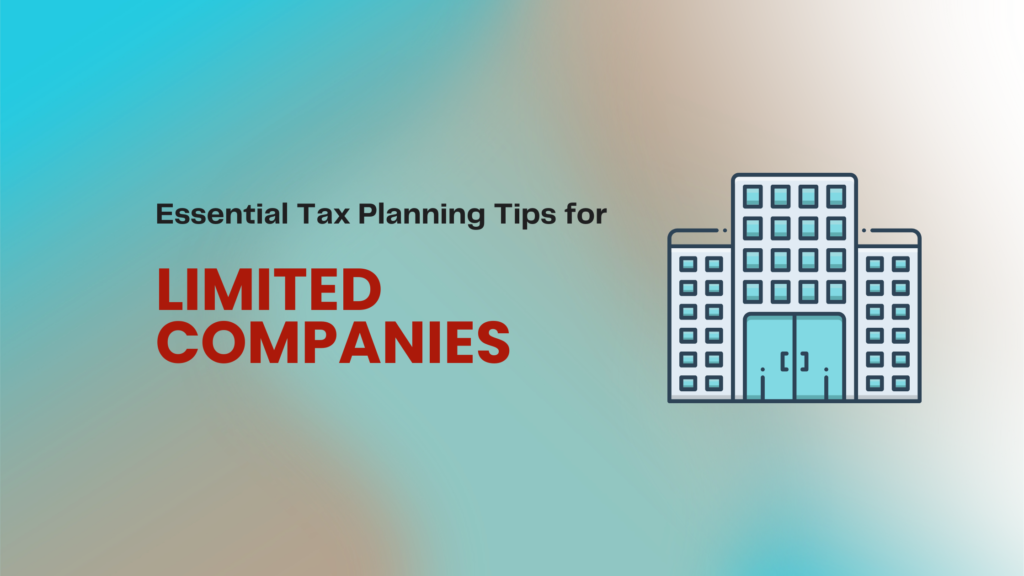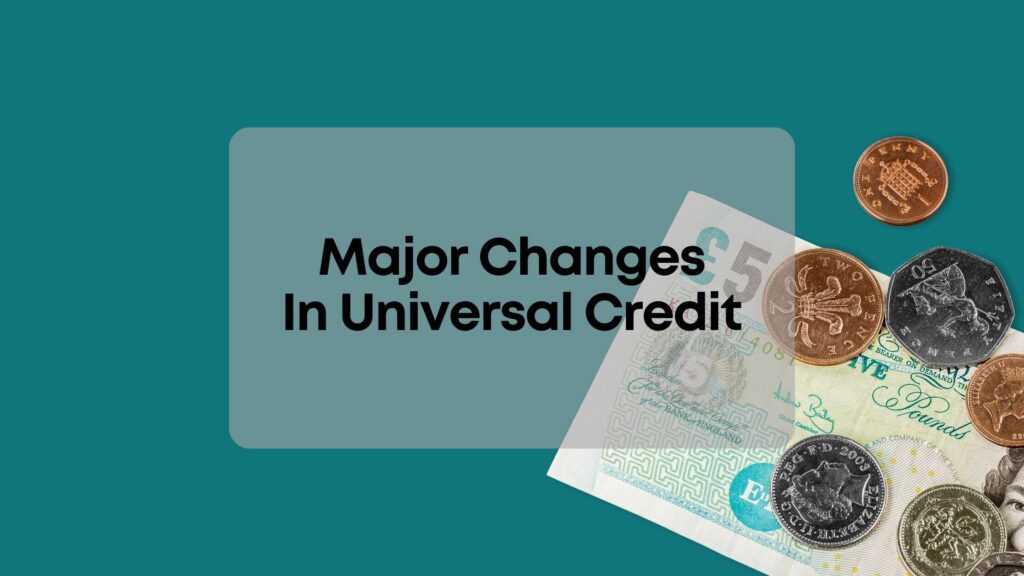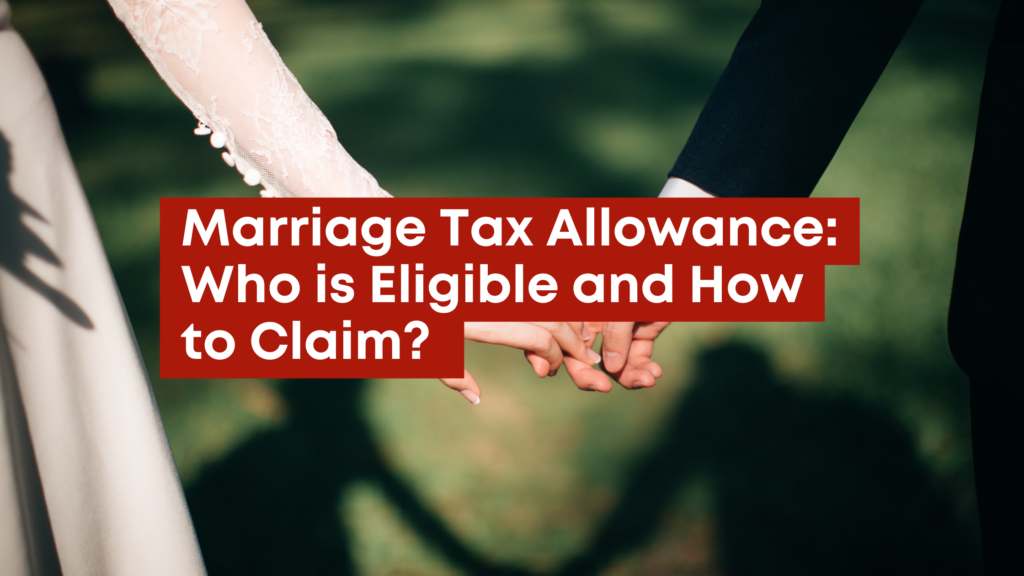Tax planning is essential for running a limited company in the UK. It helps you maximise savings and ensures you remain compliant with HMRC regulations. Effective tax planning can bring significant financial benefits to limited companies, allowing you to reinvest in your business and achieve your financial goals. Our article explores essential tax planning tips for limited companies in the UK and provides effective strategies to optimise your tax efficiency.
Understanding Limited Company Taxation in the UK
Before we get into the essential tax planning tips, it’s important to understand the basics of limited company taxation in the UK. Limited companies have to pay various taxes, the most significant of which is Corporation Tax. Here are some key points to keep in mind:
- Corporation Tax: This is a tax on your company’s profits. The main rate for the 2023/24 tax year is 25%, but it varies from 19% to 25% based on your total profits.
- VAT (Value Added Tax): You must register for VAT if your company’s taxable turnover exceeds a certain threshold. For further details on VAT requirements and processes, you might find our article on how VAT works for UK businesses helpful
- Contributions to PAYE (Pay As You Earn) and National Insurance for employees and employers.
Additionally, you must meet important tax deadlines and filing requirements, such as submitting your annual accounts and filing your Corporation Tax return on time.
Essential Tax Planning Tips For Limited Companies
Effective tax planning involves taking advantage of various allowances, reliefs, and strategies to minimise tax liability. Here are some essential tips to consider:
1. Claiming Allowable Expenses
One of the simplest ways to reduce your tax bill is by claiming allowable business expenses. These are costs that are necessary for the day-to-day running of your business. Examples include:
- Business equipment (laptops, mobile phones, furniture)
- Consumables (pens, paper, ink)
- Professional fees (accountants, solicitors)
- Marketing costs (websites, advertising)
- Travel expenses (mileage, public transport)
Remember, personal expenses should not be claimed as business expenses.
2. Utilising Tax Reliefs
There are several tax reliefs available for limited companies, including:
- R&D Tax Credits: If your company engages in research and development activities, you may be eligible for R&D Tax Credits, which can significantly reduce your Corporation Tax bill.
- Capital Allowances allow you to deduct certain assets from your taxable profits, such as machinery and equipment.
3. Pension Contributions
Making pension contributions through your limited company can be an effective tax planning strategy. Such as:
- Employer Contributions: Contributions to employees’ (and directors’) pension schemes are deductible expenses, which can reduce your corporation tax bill.
- Personal Contributions: If you are a director, you can make personal pension contributions that extend tax relief.
Always speak to a financial advisor to structure pension contributions in a way that maximises tax efficiency for both the company and its employees.
4. Structuring Your Business and Remuneration Tax Efficiently
The way you structure your business can play a significant role in how much tax you pay. Consider the following strategies:
- Incorporation: If you’re operating as a sole trader, consider incorporating your business. Limited companies often benefit from lower profit tax rates relative to personal income tax rates.
- Holding Companies: For businesses with multiple subsidiaries, establishing a holding company can help in managing tax liabilities more effectively.
- Shareholder Dividends: Dividends to shareholders are more tax-efficient than high salaries, since dividends are not subject to National Insurance Contributions (NICs).
- Tax-Efficient Remuneration: Consider a mix of salary and dividends to extract profits from your company. Dividends are taxed at a lower rate than salary, making them a more tax-efficient option.
5. Leveraging Capital Allowances
Capital allowances allow you to offset the cost of certain capital assets against your taxable profits, including machinery, equipment, and even vehicles.
6. Flat Rate VAT Scheme
You might benefit from the Flat Rate VAT Scheme if your annual VAT taxable turnover is less than £150,000. This scheme simplifies your VAT reporting and could result in paying less VAT overall. It is beneficial for businesses to have fewer claims on purchases.
7. Tax-Free Benefits
Certain employee benefits, such as mobile phones, health checks, and trivial benefits (e.g., gifts under £50), are tax-free. Providing these benefits can be a tax-efficient way to reward employees.
8. Accurate Record Keeping
Effective tax planning requires accurate and up-to-date records. It involves tracking income and expenses, claiming all allowable deductions, and avoiding penalties.
9. Charitable Contributions
Donating to registered charities can provide tax relief. Donations can be deducted from your company’s profits, reducing your Corporation Tax bill.
10. Deadlines and Compliance
Staying compliant with HMRC is crucial. Ensure you meet all filing deadlines and maintain accurate records to avoid penalties. Consider working with a qualified accountant to help manage your tax affairs and stay on top of regulatory changes.
Effective tax planning is crucial for maintaining the financial health of your limited company. If you claim allowable expenses, take advantage of tax reliefs, contribute to a pension plan, and stay compliant, you will be able to reduce your tax liability significantly and reinvest your savings. For more tips and personalised tax planning advice, contact Swiftacc and ensure your business is operating in the most tax-efficient way possible.
Frequently Asked Questions
Can I claim business expenses incurred before forming my limited company?
Yes, you can claim expenses incurred up to 7 years before the company starts trading as long as they meet the criteria for allowable expenses.
How can I make tax-efficient pension contributions?
Your company can make tax-efficient pension contributions by paying into an approved pension scheme. These contributions reduce the Corporation Tax your company owes, making it a smart way to save on taxes while taking profits out of the business.
How can I transfer personal assets into my company?
Contributions made by your company to an approved pension scheme are deductible for Corporation Tax purposes, making them a tax-efficient way to extract profits from your company.
What are some quick tax efficiency tips for limited company directors in 2023/2024?
- Plan ahead and understand your tax liabilities.
- Be aware of corporation tax changes.
- Accurately record income and expenses throughout the year.





